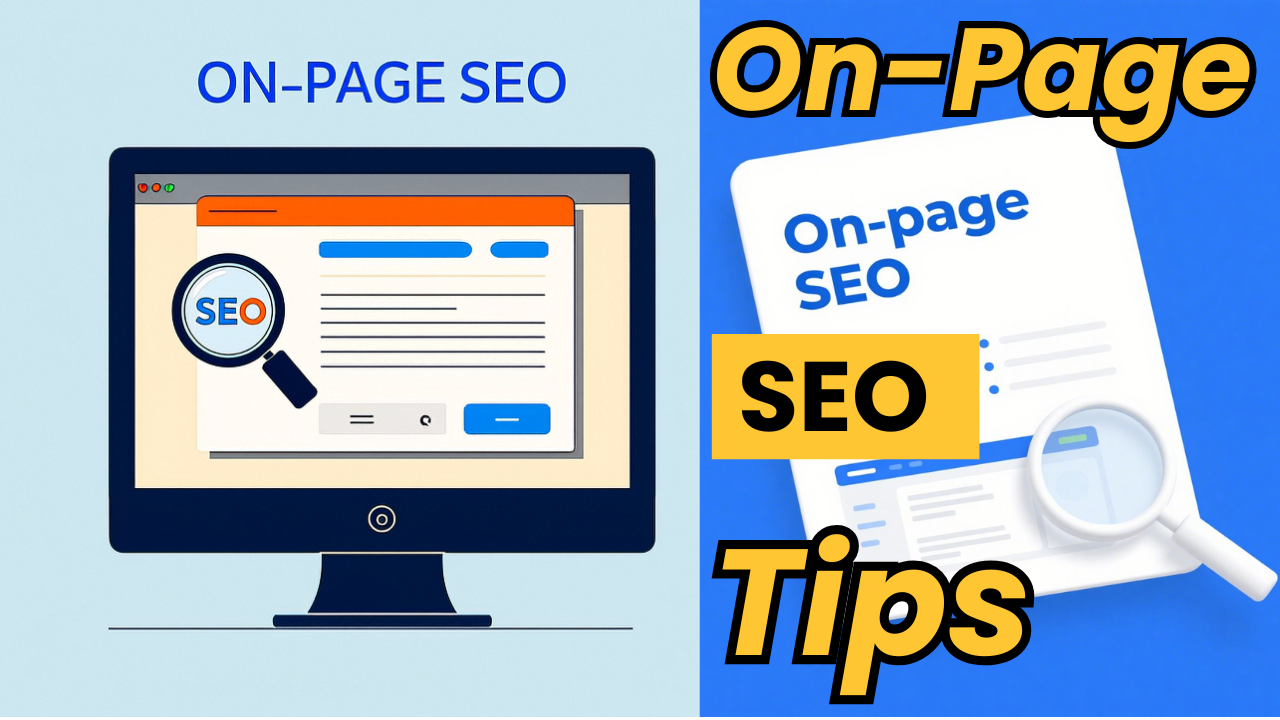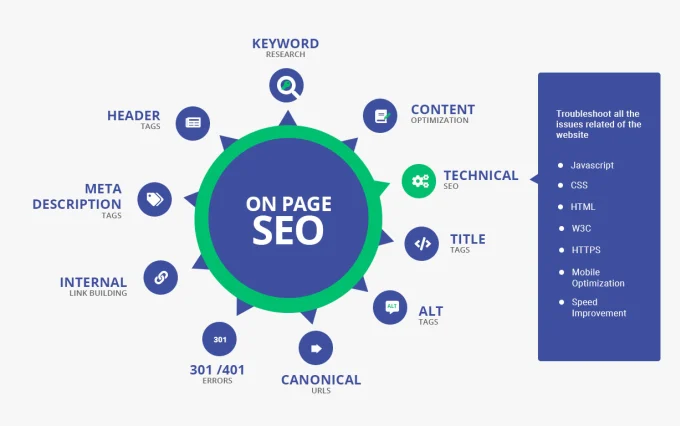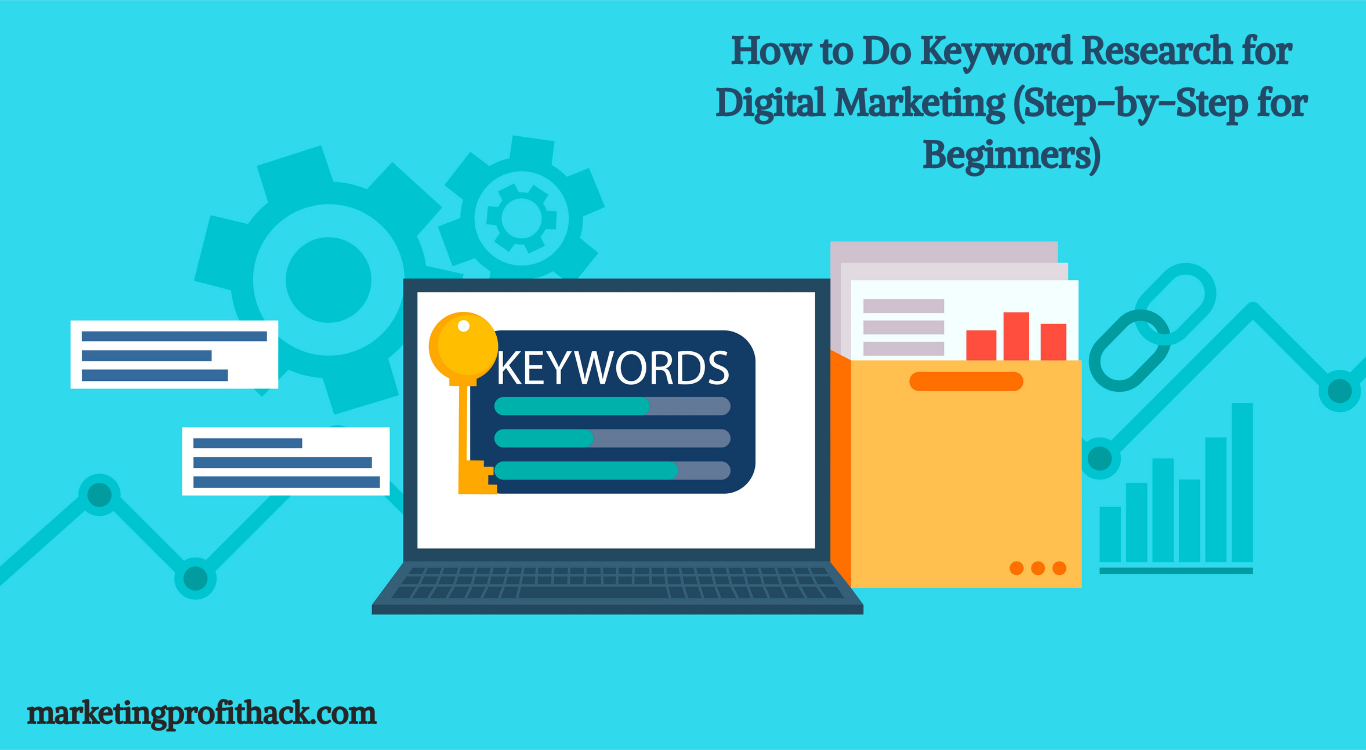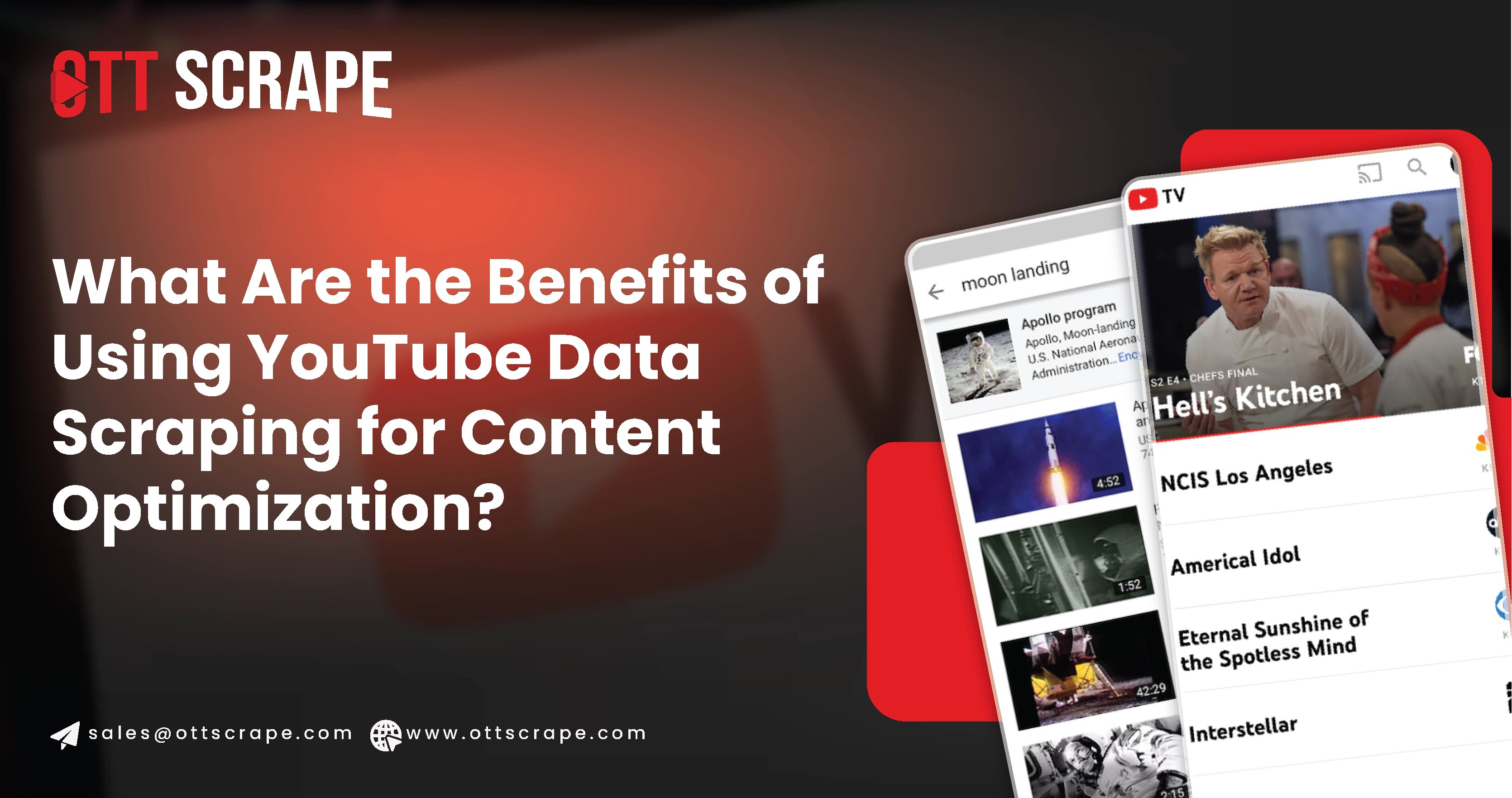11 Best SEO Content Optimization Tools for 2025
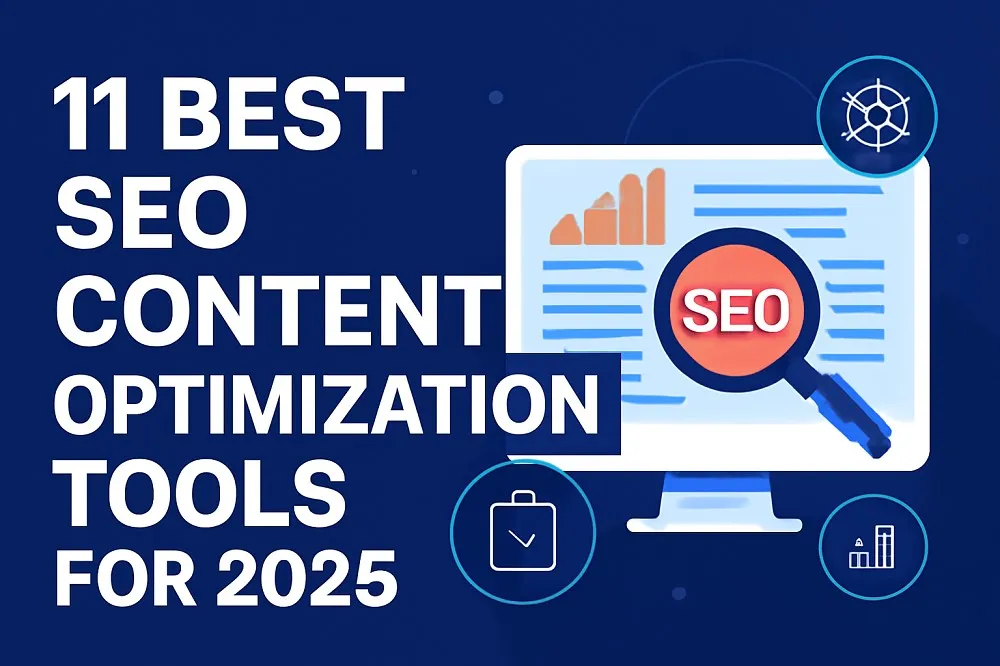
Creating high-quality content that ranks well on Google isn’t just about writing great articles. It requires the right strategies and tools to ensure that your content is optimized for search engines, delivering the best possible experience for your audience. In 2025, SEO content optimization has evolved with new tools and technologies that help content creators get more traffic and better rankings. In this post, we will explore the 11 best SEO content optimization tools for 2025 and how they can help you improve your SEO game.
✍️ Discover how on-page SEO can work alongside content marketing to create high-authority pages that dominate Google rankings and attract quality organic traffic.
Why SEO Content Optimization is Crucial for 2025
SEO is constantly changing, and in 2025, it’s more focused on creating useful, relevant, and high-quality content than ever before. The algorithms used by search engines like Google have become smarter, understanding not only the words you use but also the intent behind them. Optimizing your content helps ensure that it aligns with both user needs and search engine requirements.
When you optimize your content for SEO, you make it easier for Google to understand what your content is about, making it more likely to rank well for relevant search queries. But more importantly, it helps your audience find exactly what they’re looking for, enhancing their experience and improving engagement. This ultimately leads to more traffic, better rankings, and higher conversions.
Key Features to Look for in SEO Content Optimization Tools
When selecting SEO content optimization tools, look for features that address the following key aspects:
Advanced Keyword Research: You need tools that help you identify not just high-volume keywords, but also related LSI (Latent Semantic Indexing) and NLP (Natural Language Processing) keywords that Google’s algorithms favor. These keywords enhance the relevance of your content and give it more semantic depth.
Content Performance Metrics: Tracking how your content is performing is crucial. Tools that offer performance metrics — such as bounce rate, engagement time, and conversion rates — give you insight into what’s working and what’s not.
On-Page SEO Optimization: The best SEO tools help you optimize on-page elements like meta titles, descriptions, and heading structures. These are crucial for both user experience and SEO.
Content Editing and Readability: Ensuring that your content is easy to read and understand is essential for keeping your audience engaged. Tools that help with grammar, readability, and sentence structure can elevate your content significantly.
The Top 11 SEO Content Optimization Tools for 2025
Let’s dive into the tools that can help take your SEO content to the next level. These tools are designed to improve everything from keyword research to content performance tracking, and they are some of the best available in 2025.
1. Rankability
Rankability is an AI-powered tool that leverages NLP to optimize content for SEO. It’s designed to help you craft content that aligns perfectly with search engine requirements. One of its standout features is its ability to generate content briefs and outlines based on competitor analysis. It also provides insights into keyword optimization and how to best integrate them into your content.
Best For: Content creators looking for a comprehensive on-page SEO tool that incorporates AI and NLP to improve rankings.
2. Hemingway Editor
The Hemingway Editor is a favorite tool for many content writers because it focuses on improving readability. It helps you write content that is clear, concise, and easy to read. Hemingway highlights complex sentences, overused adverbs, and passive voice, encouraging you to simplify your writing. This is a great tool for ensuring your content resonates with a wider audience.
Best For: Writers who want to improve the clarity and readability of their content, making it accessible to a broad audience.
3. Grammarly
Grammarly is an indispensable tool for checking grammar, spelling, and punctuation. But it goes beyond basic grammar checking — Grammarly also offers suggestions to improve your content’s tone, style, and even vocabulary. It can help ensure that your content is polished and professional before it goes live.
Best For: Anyone looking to produce error-free, high-quality writing that appeals to both users and search engines.
4. Yoast SEO
Yoast SEO is a popular SEO plugin for WordPress that helps you optimize your content for search engines. It provides an easy-to-follow guide on how to improve your content’s SEO by suggesting changes to meta titles, descriptions, keyword density, and readability. While it doesn’t replace advanced SEO tools, it is an essential addition for anyone using WordPress.
Best For: WordPress users who need a simple, user-friendly tool for on-page SEO optimization.
5. Link Whisper
Link Whisper is a powerful internal linking tool that automates the process of creating internal links within your website. Internal links are important because they help spread link equity across your site and guide search engines to important pages. Link Whisper analyzes your content and suggests relevant internal links, saving you time and improving your website’s structure.
Best For: Website owners who want to automate and streamline internal linking across their content.
6. Google PageSpeed Insights
Page load time is a critical ranking factor in 2025, and Google PageSpeed Insights helps you monitor and improve your website’s loading speed. It provides suggestions on how to make your website faster, such as compressing images, leveraging browser caching, and improving server response times. A fast-loading page contributes to better user experience and SEO performance.
Best For: Anyone looking to optimize their website’s load time to improve SEO and user experience.
7. Mouseflow
Mouseflow is a user behavior analytics tool that uses heatmaps, session recordings, and other features to show how users interact with your content. By analyzing user behavior, you can identify areas of your website where visitors are getting stuck or losing interest. This data can be used to optimize content and design, ensuring a better user experience.
Best For: Websites looking to optimize user experience based on real data and behavior insights.
8. Google’s SERPs
Google’s SERPs (Search Engine Results Pages) can provide a wealth of information about how your competitors are performing. By analyzing the search results, you can identify ranking factors, featured snippets, and other content elements that might influence your click-through rate (CTR). This analysis allows you to refine your content strategy and target high-value opportunities.
Best For: SEO professionals looking to understand SERP features and how to leverage them for better rankings.
9. Google Analytics
Google Analytics is a powerful tool for tracking website traffic, user behavior, and conversion metrics. You can use it to monitor the performance of your content, track organic search traffic, and identify areas for improvement. It’s essential for understanding how your SEO efforts are translating into real-world results.
Best For: Content creators and marketers who need to track and analyze content performance and audience behavior.
10. Google Search Console
Google Search Console helps you monitor and improve your site’s presence in Google Search results. It provides data on your site’s search traffic, keyword performance, and issues that may affect your rankings. It’s an essential tool for identifying opportunities to optimize content and fix technical SEO problems.
Best For: Website owners who want to monitor their site’s SEO performance and address any technical issues that might hurt rankings.
11. SEOTesting.com
SEOTesting.com is a great tool for split testing SEO content. It allows you to test different versions of your content and see which one performs better in search rankings. By testing headlines, content length, and other elements, you can optimize your content for maximum SEO impact.
Best For: Websites that want to A/B test different content variations to see which one drives the most traffic.
How to Choose the Right SEO Content Optimization Tool for Your Needs
When selecting an SEO content optimization tool, keep these tips in mind:
Understand Your Content Goals: Are you trying to improve rankings, increase traffic, or boost conversions? Choose tools that align with your specific objectives.
Evaluate Key Features: Look for tools that offer keyword research, performance tracking, and on-page SEO features that match your content strategy.
Consider Integration: Make sure the tools integrate well with your existing SEO platforms like Google Analytics, WordPress, or any other CMS.
Set Your Budget: While some tools are free, others may require a paid subscription. Choose tools that offer the most value for your budget.
Best Practices for Using SEO Content Optimization Tools
Start with a Content Strategy: Before using tools, define your goals and strategy. This will help you select the right tools and guide your content creation process.
Balance Automation and Manual Effort: Don’t rely on automation alone. Use tools to help you optimize content but ensure your personal touch shines through.
Regularly Update Your Content: SEO is a continuous process. Regularly review and update your content to keep it relevant and maintain its rankings.
Frequently Asked Questions (FAQs)
1. What are the best SEO content optimization tools for beginners?
For beginners, tools like Yoast SEO, Grammarly, and Google PageSpeed Insights are user-friendly and provide valuable insights for improving content.
2. Do I need to use all of these tools for optimal results?
Not necessarily. Start with the tools that address your immediate needs, such as keyword research, readability, or site speed, and expand as you grow.
3. How do SEO content optimization tools help with keyword ranking?
These tools help by suggesting keywords, optimizing on-page elements, and tracking performance, all of which contribute to better rankings over time.
4. Can AI-powered tools replace human copywriters for SEO?
AI tools can assist in content creation, but human copywriters are still essential for adding creativity, tone, and nuance that AI cannot replicate.
5. How often should I update my SEO content for better ranking?
It’s important to review and update your content regularly, ideally every 6–12 months, to ensure it stays relevant and aligned with current SEO trends.
Conclusion
Optimizing your content for SEO in 2025 requires the right tools to help you stay ahead of the competition. From keyword research to content performance tracking, the tools listed above can help you enhance your content, improve rankings, and provide a better experience for your audience. By integrating these tools into your content strategy, you can ensure that your SEO efforts deliver real, measurable results.
Note: IndiBlogHub features both user-submitted and editorial content. We do not verify third-party contributions. Read our Disclaimer and Privacy Policyfor details.



